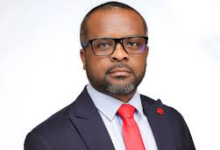Prof Fred Newton Binka, a pillar in medical technology, research, and innovations

From breakthroughs in treating and preventing diseases to improving public health policies and practices, the successes in the health sector are numerous and far-reaching, thanks to advancements in medical technology, research, and innovations in healthcare delivery.
One person who continues to stand out whenever these successes in the health sector are talked about is Professor Fred Newton Binka.
He is a distinguished professor in the field of epidemiology with a remarkable career spanning over three decades. As a seasoned researcher and educator, Prof. Binka has made significant contributions to the understanding, prevention, and control of infectious and chronic diseases worldwide. Through his extensive work, Prof. Binka has established himself as a thoughtful leader in the epidemiology community, respected for his ground-breaking research and innovative approaches to tackling complex public health challenges. With a wealth of experience and expertise, Prof. Binka continues to inspire and train the next generation of epidemiologists, providing a legacy that will undoubtedly shape the future of the field for years to come.
EARLY LIFE/ EDUCATION
Born to Mr Prince and Mrs Agnes Binka, both of blessed memory in 1953, Prof. Binka started his basic education at the Pong-Tamale LA Primary and Middle School at Tamale in the Northern Region before leaving for Kpando Senior High School for ‘O’ levels in 1965 and ‘A’ levels in 1970.
He continued to the University of Ghana (UG) in 1972 where he graduated with an MBCHB from the UG Medical School in 1978.
He continued to the Hebrew University, Jerusalem in Israel where he obtained a Master’s Degree in Public Health in 1987 and finally obtained his PhD in Epidemiology with summa cum laude (distinction) from the University of Basel, Switzerland in 1996.
ACHIEVEMENTS
For nearly 20 years, he worked for Ghana’s Ministry of Health. He founded the highly regarded Navrongo Health Research Centre in Ghana during that time, where he carried out a number of extensive intervention studies, including the Insecticide Treated Bed Nets Study in Ghana. During his stay, the Navrongo Community Health and Reproductive Project was birthed alongside the Community-based Health Planning and Services (CHPS), subsequently translated into what is commonly known as the “CHPS compounds”, to provide primary healthcare to the doorsteps of clients.
He also founded the Indepth-Network, which has 54 field locations spread across 24 developing nations in Asia and Africa.
In addition to serving on numerous WHO expert committees and panels, Professor Binka chaired the GAVI Independent Review committee for four years and served as a trustee for a number of international non-governmental organisations (NGOs) that work on health issues, particularly malaria, including the Innovative Vector Control Consortium (IVCC) and Malaria Consortium based in the United Kingdom. He is a member of the International Vaccine Institute’s (IVI) Board of Directors in Seoul, Korea, and a former member of the Ghana Health Service’s Council, Ministry of Health Ghana, as well as a member of the Malaria Advisory Committee (MPAC).
Hitherto, he served as the Greater Mekong sub-region of Asia’s WHO Emergency Response to Artemisinin Resistance Coordinator.
He has received recognition from all across the world for his efforts. For his work on malaria, he was the inaugural recipient of the Rudolf Geigy Award in 2001 and the Ronald Ross Medal in 2010. In 2015, he was also given an honorary fellowship by the American Society of Tropical Medicine and Hygiene. He recently received the Ghanaian President’s national honour, the Officer of the Order of the Volta (OV). Additionally, his capacity-building initiatives earned him the Dr Pascoal Moccumbi award from EDCTP in 2016.
Prof. Binka is a well-known authority in his profession who has published widely and served on numerous editorial boards for peer-reviewed journals. His more than 200 publications include “Four decades of community-based primary health care development in Ghana; Prevalence and Factors Associated with Low Birth Weight and Preterm Delivery in the Ho Municipality of Ghana; and Health impacts of industrial mining in Ghana and sub-Saharan Africa: A Policy Brief.”
Between 1989 and 1992, he worked with a group of scientists from Ghana and the London School of Health and Tropical Medicine to research the Ghana Vitamin ‘A’ Supplementation Trial, which resulted in policy. Due to his efforts, Vitamin A is now incorporated into Ghana’s immunisation programme for the survival and good health of children under five years.
He recently received an honorary doctorate degree, Honoris Causa; for the sake of honour. A doctor of science degree conferred on to him by the University of Ghana for his contributions to the field of global health and the growth of the University.
He’s currently a professor of epidemiology at the University of Health and Allied Science (UHAS).
ADVICE
Prof. Binka who spoke to the Ghanaian Times on the sideline of his receipt of the award of Doctorate degree by his alma mater as an institutional builder indicated that his successes over his lifetime were as a result of hard work and the commitment towards the development of all areas, he found himself in.
He was among the 18 honoured by the UG, for institutional builder as during his tenure he played leading roles in the introduction of Masters’ degree programmes of direct relevance to Ghana and the Sub-Saharan African region.
He also attracted substantial funding to the school through his extensive networks, thereby helping to expand the infrastructure, human resource and geographical coverage of students enrolling into the programmes in the school.
According to him hard work never goes unnoticed so “when you work hard, the sky is the limit because currently I’m not working with the UG but they recognised the work I’ve done even in Ho and here so when you give back to society, society will recognise you.”
Professor Binka urged the younger generation to emulate the hard-working individuals in society who are making an impact by working hard and giving their best in any area where they find themselves as it would lead them to success and it won’t go unnoticed.
According to the African Population and Health Research (APHR) sub-Saharan Africa contributes just one per cent of the global scientific products like patents, research papers, and peer-reviewed articles. Additionally, a World Bank report indicates that the African continent needs one million quality research leaders to contribute to the global knowledge, economic and to drive the continent’s socio-economic development.
An institutional builder, Prof. Binka continues to play a pivotal role in transfer of skills and knowledge and in training the next generation of quality researchers from local talents to drive the continent’s growth through evidence- based policies and practices.
As we reflect on his remarkable journey, we are reminded of the profound impact one individual can have on the lives of many, and the boundless possibilities that lie ahead in the pursuit of improved population health.
BY JESSEL LARTEY THERSON-COFIE



